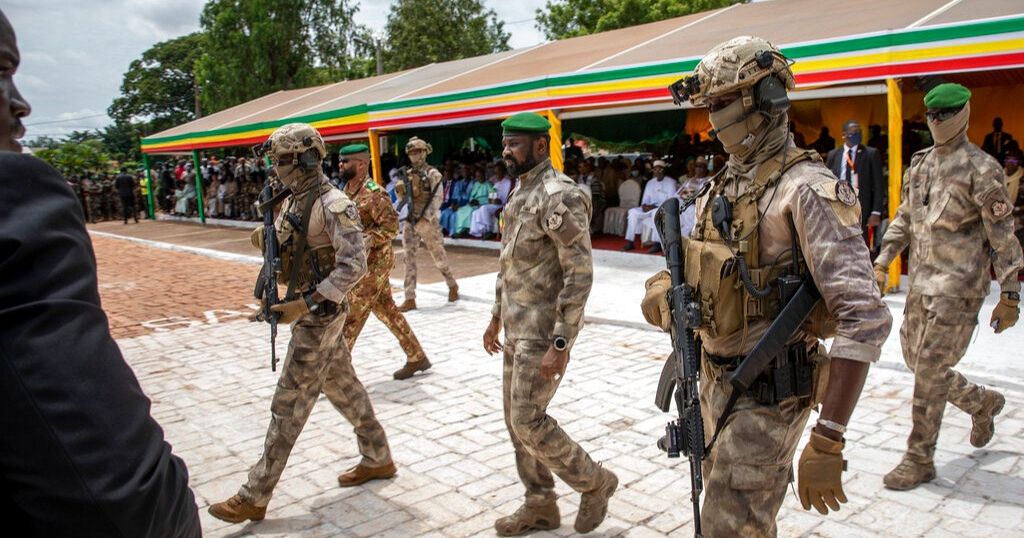Mali’s military government has detained at least 45 soldiers, including two high-ranking generals, over an alleged plot to overthrow the ruling junta, according to sources familiar with the matter. The arrests, carried out over the weekend, highlight mounting internal tensions within the West African nation’s armed forces amid worsening security crises and political repression.
General Abass Dembélé, a former governor of Mali’s central Mopti region and a widely respected figure within the military, was taken into custody on Sunday near the capital, Bamako. A source close to Dembélé described the arrest as abrupt, stating that no explanation was provided by authorities. Brigadier General Nema Sagara, one of the few women to hold senior rank in Mali’s army, was also detained. A member of parliament, who spoke anonymously, asserted that the group of soldiers aimed to “overthrow the junta,” though details of the alleged plot remain unclear.
The arrests underscore persistent instability within Mali’s military leadership, which has governed the country since back-to-back coups in 2020 and 2021. The first uprising, in August 2020, saw President Ibrahim Boubacar Keïta ousted after widespread protests over his administration’s inability to contain jihadist violence in northern Mali. The junta initially pledged to restore civilian rule within 18 months but has repeatedly delayed elections, most recently pushing the vote to 2027. Colonel Assimi Goïta, who rose to power following a second coup in May 2021, now faces growing dissent as security and governance deteriorate.
Jihadist attacks have surged under military rule, with Islamist groups linked to al-Qaeda and Islamic State killing at least 7,620 people across the Sahel region in the first half of 2024 alone, according to the Armed Conflict Location and Event Data Project (ACLED). A June 1 assault by Jama’a Nusrat ul-Islam wa al-Muslimin (JNIM) on a military base in Boulkessi claimed over 30 Malian soldiers’ lives, reflecting the escalating threat.
In response, the junta has tightened its grip on dissent. In May, Goïta dissolved all political parties and civil society groups, triggering protests and international condemnation. Critics argue the moves aim to suppress opposition as public frustration grows over economic hardship and unmet security promises. The recent arrests of senior military figures suggest fractures even within the armed forces, long considered the junta’s power base.
Mali’s political turmoil coincides with regional instability, as military regimes in neighboring Burkina Faso and Niger similarly grapple with insurgencies and postponed democratic transitions. The Sahel’s crises, compounded by climate shocks and poverty, now represent one of the world’s most complex humanitarian emergencies, with millions displaced and international aid efforts strained. As arrests and violence continue, Mali’s path to stability appears increasingly uncertain.
